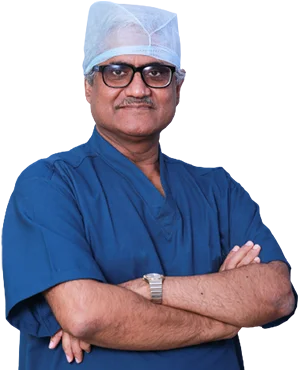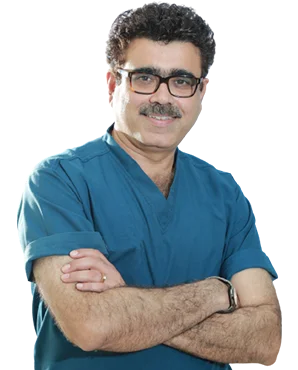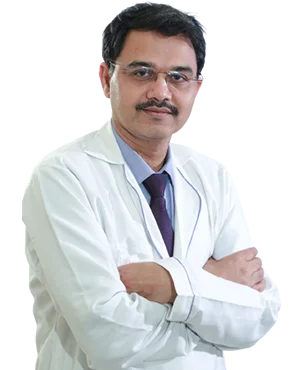general medicine

Interventional Cardiology

Electrophysiology

3 Cath Labs

3D Ablation treatment

Heart Team
The Department of General/Internal
The Department of General/Internal Medicine is led by a team of experienced senior consultants who have leveraged their vast knowledge to achieve excellence in the field. The hospital’s need to operate three parallel Medical OPDs per shift underscores the high standard of care provided to patients.
In addressing the challenges of bacterial resistance, the department is making a coordinated effort. While most myocardial infarction patients benefit from Aspirin and thrombotic therapy, there is no single best antibiotic for pneumonia. Therefore, physicians are working on developing an antibiotic policy for the hospital to adapt to the evolving landscape of internal medicine. They are striving to shift from empirical to evidence-based medicine.
The department remains vigilant in managing seasonal illnesses and tropical diseases. During the recent outbreak of Dengue and chikungunya, the Internal Medicine team at MJ Hospital, Noida, successfully treated over 200 patients, demonstrating their capability and capacity with nearly a 100% success rate.
Additionally, the department actively engages in social and community services around Noida, aiming to detect chronic disorders such as diabetes, hypertension, heart problems, and cancer through free camps. These camps serve as a wake-up call for many individuals.
Understanding the impact of work-related stress on health, the department emphasizes the importance of individual health. To this end, they offer various comprehensive and cost-effective health check-up packages. These check-ups, conducted daily with state-of-the-art equipment and technology, provide same-day results analyzed by senior consultants, offering professional advice, treatment, and counseling. This service is designed to reassure busy executives about their health (Please click here for more information on Preventive Health Check-up packages).
Meet Our Best Cardiology Specialists

Dr. Kunal Sarkar
FRCS (ED), FRCS (Glasg), MNMS

(Prof.) Dr. Rabin Chakraborty
MD (Internal Medicine), DNB (Internal Medicine), MRCP ...

Dr. Vikash Kapoor
MS (Orthopaedics) & Fellow Sports Medicine (Singapore)

(Prof.) Dr. Dilip Kumar Pahari
MD (Internal Medicine), DM, DNB (Nephrology)...

Dr. Pradeepta Kumar Sethy
MD (Medicine), DM (Gastroenterology)

Dr. Dilip Kumar
MD (Internal Medicine), DM (Cardiology), FRCP, FACC...
Meet Our Best Cardiology Specialists
Angina/Unstable Angina
Aortic Dissection
Pericarditis
Valvular Disease
Coronary Artery Disease (CAD)
Hypertension (High Blood Pressure)
Heart Failure
Arrhythmias (Irregular Heartbeats)
Valvular Heart Disease
Congenital Heart Defects
Cardiomyopathy
Peripheral Artery Disease (PAD)
Aortic Aneurysms
Rheumatic Heart Disease
Acute Heart Attack (Myocardial Infarction)
Acute Shortness of Breath/Heart Failure
Symptoms of Diabetes
Excess blood sugar can cause serious health issues. There are two chronic types of diabetes: Type 1 and Type 2, with similar symptoms:
Frequent urination
Constant thirst
Persistent fatigue
Sudden, unexplained weight loss
Blurred vision
Feeling hungry soon after eating
Diabetes Treatment at MJ Hospital
Our specialized team includes certified educators for diabetes counseling and dieticians for customized meal plans. We adopt a multidisciplinary approach to ensure expert care for all diabetic complications, such as:
- Foot care: Screening and management of foot ulcers.
- Eye care: Treatment for diabetic retinopathy, muscular disorders, cataracts, and glaucoma.
- Kidney care: Prevention or delay of diabetic kidney disease.
- Weight management: Nutritional guidance and robotic bariatric surgery.
- Diabetes in children: Expert care from pediatric, nutrition, and allied departments.
Maintaining a healthy, diabetes-friendly diet is essential. This includes healthy carbs from fruits, vegetables, whole grains, and legumes, and low-fat dairy. Avoid sugary foods and drinks, and pair carbs with salads.
Frequently Asked Questions
Nowadays, it’s increasingly common for young and middle-aged individuals to experience heart issues, especially with the rising prevalence of obesity, type 2 diabetes, and other risk factors as we age.
It’s prudent to consult your doctor regarding your heart health, particularly if you possess risk factors like smoking, excessive drinking, poor diet, obesity, high blood pressure, diabetes, or high cholesterol levels.

